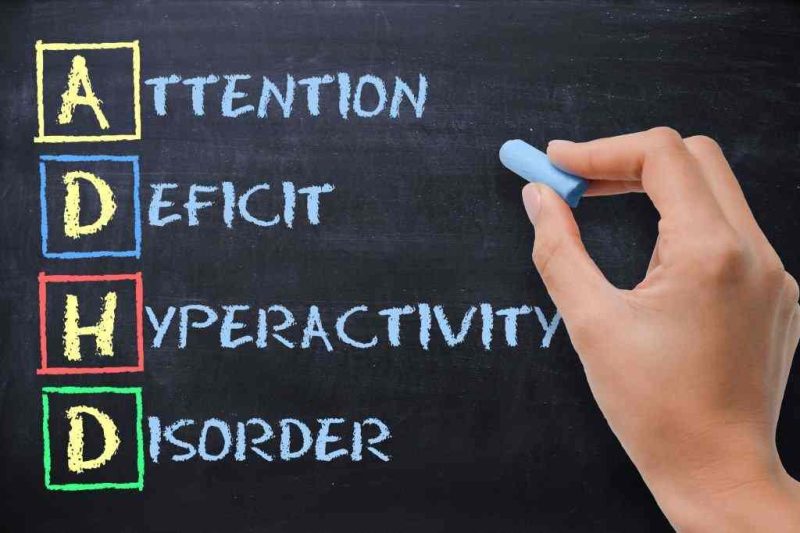ADHD stands as a prevalent neuro-developmental disorder that primarily affects children. Autism spectrum disorder is typically diagnosed during childhood and persists through adulthood.
Children with ADHD may encounter challenges in focusing their attention, managing impulsive behaviors (acting without considering the consequences), or exhibiting excessive activity levels.
Signs and Symptoms of ADHD
It is common for children to experience occasional difficulties with focus and behavior. However, children with ADHD do not simply outgrow these behaviors.
The symptoms persist, can be significant, and can create challenges in academic settings, at home, and in social relationships.
A child with ADHD may:
- Engage in frequent daydreaming.
- Exhibit forgetfulness or misplace belongings frequently.
- Display restlessness or fidgeting
- Engage in excessive talking.
- Make careless errors or take unnecessary risks.
- Struggle with impulse control.
- Find it challenging to take turns.
- Encounter difficulties in getting along with others.
Types of Attention-Deficit & Hyperactivity Disorder(ADHD)
ADHD manifests in three distinct ways, depending on which symptoms are most prominent in the individual:
Predominantly Inattentive Presentation
Individuals exhibit difficulty organizing tasks, completing them successfully, paying attention to detail and following instructions or conversations. They are easily distracted and tend to forget daily routines.
Predominantly Hyperactive
Impulsive Presentation: Individuals exhibit excessive fidgeting and talking. They find it challenging to remain seated for extended periods, such as during meals or while doing homework. Younger children may engage in constant running, jumping, or climbing.
Restlessness is common, and impulsivity poses difficulties. Impulsive behaviors may include frequent interruptions, grabbing items from others, or speaking at inappropriate times.
Waiting for their turn or listening to directions proves challenging. Individuals with impulsiveness may experience more accidents and injuries compared to their peers.
Combined Presentation: The individual displays symptoms from both the inattentive and hyperactive-impulsive types. The specific symptoms can change over time, and the presentation of ADHD may also evolve as the individual grows.
Causes of ADHD

Researchers are actively investigating the causes and risk factors associated with it to develop improved management strategies and reduce the likelihood of its occurrence.
While the exact causes and risk factors remain unknown, current studies highlight the significant role of genetics in ADHD development.
Beyond genetics, scientists are exploring other potential causes and risk factors, which include:
- Brain injuries
- Environmental hazards (such as lead) during gestation or early childhood exposure is known to pose risks
- Maternal alcohol and tobacco use during pregnancy
- Premature birth
- Low birth weight
Contrary to popular beliefs, scientific research does not support the notion that excessive sugar consumption, excessive television viewing, specific parenting styles, or social and environmental factors like poverty or family instability cause ADHD.
Although these factors may exacerbate symptoms, especially in specific individuals, the evidence is insufficient to establish them as primary causes.
Diagnosis
Assessing whether a child has ADHD involves a multi-step process. No single test can definitively diagnose ADHD, as various other issues, such as anxiety, depression, sleep disorders, and specific learning disabilities, can exhibit similar symptoms.
One crucial step in the diagnostic process is a comprehensive medical examination, which may include hearing and vision assessments, to rule out any other underlying conditions that share symptoms with ADHD.
The diagnosis of ADHD typically involves utilizing a symptom checklist to evaluate ADHD-related behaviors and gathering a detailed history of the child’s behavior from parents, teachers, and occasionally the child themselves.
Treatments for ADHD
The optimal approach for treating ADHD typically involves a combination of behavior therapy and medication. Regarding preschool-aged children (4-5 years old) diagnosed with ADHD, behavior therapy, specifically parent training, is recommended as the initial treatment option before considering medication.
The effectiveness of treatment can vary depending on the individual child and their family dynamics. A comprehensive treatment plan should involve careful monitoring, regular follow-ups, and the flexibility to make necessary adjustments.
Managing Symptoms of ADHD
Staying Healthy
Maintaining overall health is crucial for all children and holds particular significance for those with ADHD. In addition to behavioral therapy and medication, fostering a healthy lifestyle can facilitate the management of it’s symptoms in your child.
Here are some beneficial behaviors to consider:
- They are cultivating healthy eating habits by incorporating ample amounts of fruits, vegetables, and whole grains into their diet while also opting for lean protein sources.
- They are engaging in daily physical activities suitable for their age to promote regular exercise and encourage a healthy level of physical fitness.
- Restricting daily screen time, including television, computers, phones, and other electronic devices, to strike a balance and promote other activities and interactions.
- Ensuring your child receives the recommended amount of sleep each night based on age, as adequate sleep is vital for their overall well-being.
- By encouraging these healthy behaviors, you can support your child in managing their symptoms effectively while promoting their overall health and well-being.
Get Help!
If you have concerns about ADHD, there are various specialists you can consult for further evaluation. Contact professionals such as child psychologists, psychiatrists, or developmental pediatricians.
Additionally, you can seek assistance from your local early intervention agency (for children under 3) or contact the public school system (for children three and older).
The National Resource Center on ADHD, which is a program of CHADD – Children and Adults with Attention-Deficit/Hyperactivity Disorder, is supported by the Centers for Disease Control and Prevention (CDC). Their website offers valuable resources and information for individuals with ADHD and their families.
Moreover, the National Resource Center operates a call center (1-866-200-8098) with knowledgeable staff members who can provide answers to questions related to ADHD.
For comprehensive information on services available for children with special needs, you can visit the Center for Parent Information and Resources. You can utilize the resources provided on their website to locate the Parent Center nearest to your location
ADHD in Adults
ADHD is not limited to childhood and can persist into adulthood. Adults can have ADHD without ever receiving a formal diagnosis. The symptoms can create challenges in various aspects of life, including work, home, and relationships.
As individuals age, the symptoms may manifest differently, such as extreme restlessness instead of hyperactivity. Additionally, the symptoms can intensify as the responsibilities and demands of adulthood increase.
For comprehensive information regarding diagnosis and treatment across different stages of life, I recommend visiting the websites of the National Resource Center on ADHD and the National Institutes of Mental Health. These resources can provide valuable insights and guidance.






